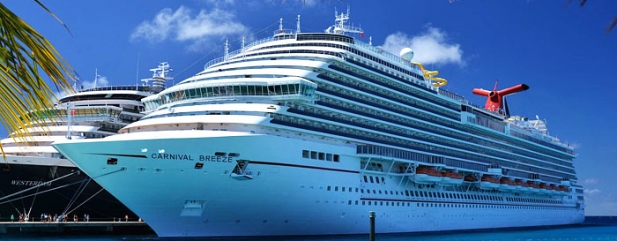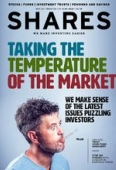Archived article
Please note that tax, investment, pension and ISA rules can change and the information and any views contained in this article may now be inaccurate.
Invest in Carnival now it’s a higher quality business

After a great run between 2015 and 2017, shares in cruise ship operator Carnival have been in retreat for some time. We think the stock has fallen too far and that now is a great time to buy.
Its dividend has increased at a compound annual growth rate of 13.5% over five years, while the number of shares have been reduced by 13% as the company bought back shares. This powerful combination has delivered around £7.6bn of cash into the pockets of shareholders since 2014, and representing 42% of the value of the business in 2014.
So why haven’t the shares kept pace with an underlying 26% compound annual growth in earnings per share since 2014? Perhaps investors fear that slowing global growth and overcapacity will result in lower revenues which, given a high operating leverage, will overly impact profit. Operating leverage measures the sensitivity of profit to changes in revenue.
However, we believe the company has addressed these worries and plans a more measured approach to capacity management. Over the past five years, the company has put 12 new state-of-the-art vessels into operation and retired nine less efficient ships.
Greater economies of scale are promised, with a further 17 new ships going into operation over the next five years, as the company continues to divest the less efficient part of the fleet. This will be the underlying driver of growth going forward.
Lower costs and more efficient fleet has resulted in higher operating cash flows and an improving trend in return on capital. In other words, the quality of the business has been improving.
Carnival is unusual in that it operates a significant negative working capital position. This is due to the fact that its customers pay deposits for cruises upfront. The company is permitted to use these funds as it sees fit, to pay down debts, or invest in the business.
In addition, unlike most companies, Carnival has virtually no money owed to it by debtors, and very little inventory. This reduces financial risk considerably.
Carnival benefits from a tax rate under 5% due to the fact that its US assets are based in international waters and are currently exempt from US federal income and branch profit taxes.
Operations outside the US such as P&O Cruises and Costa Cruises benefit from similar tax exemptions.
Although cyclical, Carnival is a highly cash generative business that is demonstrating improving returns on capital. It’s surely only a matter of time before the shares reflect the quality of the business.
Important information:
These articles are provided by Shares magazine which is published by AJ Bell Media, a part of AJ Bell. Shares is not written by AJ Bell.
Shares is provided for your general information and use and is not a personal recommendation to invest. It is not intended to be relied upon by you in making or not making any investment decisions. The investments referred to in these articles will not be suitable for all investors. If in doubt please seek appropriate independent financial advice.
Investors acting on the information in these articles do so at their own risk and AJ Bell Media and its staff do not accept liability for losses suffered by investors as a result of their investment decisions.

 magazine
magazine









